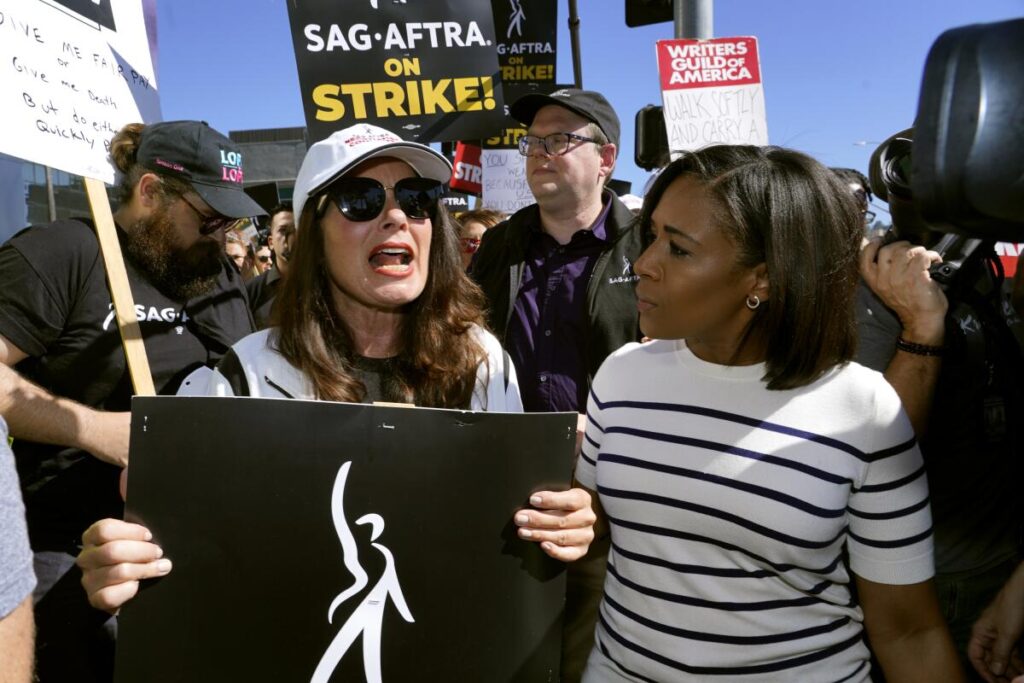
Another episode in the continuing series ‘what does green mean?’ Ahem.
And a sub-them of what does the Screen Actors Guild strike have to do with sustainability – in the business sense, everything. Every. Little. Thing.
The issues of the strike might simultaneously seem clear and be difficulty to parse, especially when the sides are show writers, actors, and creators versus the studios. One might think they would be able to work in concert, at least for the sake for of self-preservation. But panning out just a little, the sand in the gears becomes a bit more apparent. From the third link above:
If you read any of the business, publishing or entertainment press you’ll see stories about hard times in streaming world. This means Netflix, Amazon Prime Video, Max, Hulu et al. This is undoubtedly true. You’ve likely seen this in the rising prices you pay and the declining offerings your subscription gets you. I don’t write to dispute any of this. But it’s nothing new under the sun. It is more or less exactly what we’ve seen in the digital new industry. The same pattern.
Entrants raise large sums of money (or use cash on hand from other business lines) and then spend substantially more than your subscription merits. They lose money in order to build market share. At some point the industry becomes mature and then they have to convert the business to one that can sustain itself and make a profit. That means substantial retrenchment. Inevitably that means spending less on the product and charging you more.
Another way of looking at this is that the product as you knew it was never viable. You were benefiting from the excess spending that was aimed at building market share. Now the market is saturated. So that era of great stuff for relatively little money is over. At a basic level what many of us enjoyed as a Golden Age of TV was really this period of excess spending. It was based on a drive for market share, funding lots of great shows with investments aimed at building market share.
Very important to realize that, as Josh points out, streaming media is not a viable business. Without transparency and the upfront, continual re-investment in creative, there is no model, because there is no business. The streaming services don’t own anything – they have platforms and partners. One set of partners is now standing up for themselves but pointing out something very important to us and to the tech companies. If we will listen. World domination or bust is a faulty Silicon Valley idea and a very costly reality. Maybe they’ll make a show about that. Maybe that’s what they’re doing. Don’t touch that dial.
Image: SAG-AFTRA president Fran Drescher, left, takes part in a rally by striking writers and actors outside Netflix studio in Los Angeles in July. (Chris Pizzello / Associated Press) via LA Times
